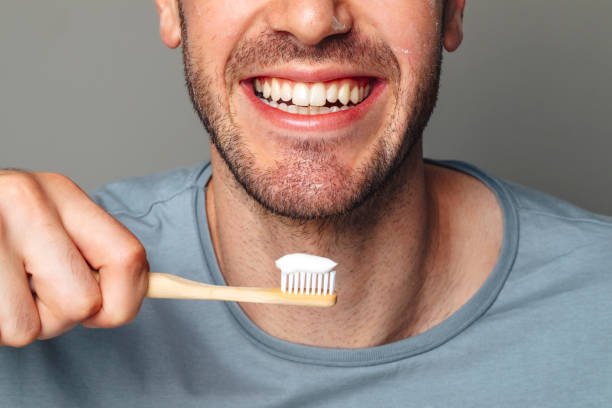Despite the fact that healthy oral hygiene practices like brushing your teeth twice a day are essential to your health, males are statistically less likely to engage in these behaviors than women. The dental professionals at Bellaire Modern Dental shared some statistics with us as it pertains to the oral healthcare of men and women.
Tooth decay, gum disease, and poor breath are just a few dental issues that may result from neglecting one’s oral hygiene. In addition, studies have shown a correlation between poor dental health and systemic diseases including diabetes and pneumonia.
Research on why men don’t brush as often as women is crucial if we’re going to come up with effective solutions to getting men to put their oral health first. We’ll discuss what’s behind the gender gap in dental hygiene, what happens when men don’t brush their teeth regularly, and what can be done to change men’s attitudes and behaviors.
Studies on Gender Differences in Oral Health Habits
There have been a number of studies looking at how often men and women wash their teeth, specifically, to see whether there are any disparities between the sexes. Among adults, 57% of women report brushing their teeth twice a day, but just 49% of males do, according to research by the American Dental Association. And it turns out that males are less likely to wash their teeth before bed than women are.
The causes of these disparities between the sexes have been the subject of several investigations. One research indicated that compared to other health concerns, males rank dental health lower on their list of priorities. They also felt less certain in their abilities to practice proper dental hygiene than women.
In addition, some research indicates that gender roles and cultural expectations may affect men’s commitment to good dental hygiene. It’s possible, for instance, that males are less inclined to prioritize oral health care than women because of stereotypically masculine gender roles that value toughness and independence.
Consequences of Infrequent Teeth Brushing
The repercussions for oral health when you don’t clean your teeth regularly are many.
- Tartar and plaque grow on teeth when food particles and germs are allowed to remain unbrushed. Teeth decay and cavities may be caused by plaque over time.
- Inflammation and infection of the gums (gingivitis and periodontitis) may be caused by plaque buildup, too.
- Bad breath occurs when bacteria and food particles in the mouth ferment, creating an unpleasant odor.
- Stains on teeth: If you don’t brush your teeth twice a day, plaque and tartar will build up on the tooth’s surface, making it tough to remove even with a professional cleaning.
- Tooth loss may happen if cavities and gum disease aren’t managed.
- Heart disease, diabetes, and lung infections are just some of the health issues connected to neglecting one’s dental hygiene.
Importance of Regular Dental Check-ups for Men
Men, in particular, should make it a priority to see the dentist on a regular basis to ensure their oral health. The need for frequent dental checkups for males is highlighted by the following points:
- Early detection of oral health issues: Cavities, gum disease, and even oral cancer may all be detected early with the help of routine dental checkups. It is possible to avoid more severe consequences and save money on therapy by catching these problems early.
- Regular dental checkups may help prevent gum disease or identify it in its early, curable stages, which can greatly reduce the likelihood of tooth loss due to gum disease.
- Preserving physical and mental wellness: Diseases of the cardiovascular, nervous, and endocrine systems have all been related to poor dental health. If you want to keep your mouth in excellent shape and lower your risk of these diseases, regular dental checkups are a must.
Overcoming Stigma Surrounding Oral Health Care for Men
Men are less likely to seek necessary dental treatment due to the social stigma attached to doing so. Some suggestions for fighting this prejudice:
- Men’s oral health cultural change We must normalize men’s dental care to eliminate the stigma. To reach this aim, initiatives, and messages should encourage male oral health as part of self-care.
- Resolving preconceptions If they care about their dental health, some men may think going to the dentist is a show of weakness. Addressing these beliefs and disseminating the message that self-care, including oral hygiene, is strong can help overcome this bias.
- Addressing men’s health: Making dental treatment easier and more attractive to males may boost their use. This may be done by making dental care easier to get or by tailoring therapy to male oral health needs and preferences.
- By establishing a welcoming environment, dental facilities may help men seek needed care.
Final Words
Education, knowledge, accessible access to oral hygiene products, personalized messaging, behavioral nudges, positive role models, and individualized oral hygiene programs may help men practice proper oral hygiene. Maintaining excellent oral health requires regular dental checkups and eliminating the stigma around men’s oral health care. We can help males prioritize oral health and prevent oral health concerns in this demographic by employing a diverse strategy.




